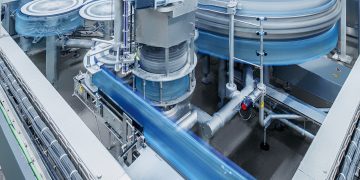If conventional farming is unhealthy for both ourselves and the planet, we need a rethink. There’s the argument to end all meat consumption but in the context of our ever-growing appetite for meat – and the importance of meat to personal diet – this solution can’t achieve change at the speed we need. So, in addition to looking at lifestyle changes, we need to change the way conventional farming operates as well as the way we source our meat.
It’s not like meat, it is meat, grown from a sample taken from an animal. And while it takes three years for a cow to be reared for slaughter in conventional farming, cultured meat can be produced in just a couple of weeks. Not only this, but producing meat in this way means only the parts of an animal that will be used are created, reducing waste and the additional resource use that comes with it.
The environmental impact of this is huge
One of the main reasons conventional farmed meat is so environmentally destructive is the inefficiency of converting plant matter to meat. A 3-year-old cow ready for slaughter will have consumed a large amount of feed in its lifetime, meaning, on average, you need almost 8kg of dry plant weight to produce 1kg of beef. In contrast, we expect to only require 3kg of plant input per 1kg of our cultured meat – making the process more than twice as efficient.
Such efficiency gains will dramatically cut the emissions and land use associated with meat production. A recent study from CE Delft, an independent research and consultancy firm, found that cultured meat can reduce the carbon footprint of conventional beef by up to 92% and reduce land use by 95%.
And this is just the starting point. The CE Delft study assumed that it would take 30 days to complete the proliferation stage of the process (the most energy-intensive step). With our technology we expect to do this much quicker, meaning cultured meat could have an even lower carbon footprint than CE Delft estimates.
The rise of cultured meat could be revolutionary for public health too. Fat and muscle cells grown in a clinical environment have no need for antibiotics and so do not contribute to antimicrobial resistance. Additionally, it ends the practice of raising animals in cramped conditions and sending them to abattoirs – both environments where pandemic-producing disease can flourish.
Yet this isn’t all. Cultured meat gives us an opportunity to improve our future health. Growing meat this way means we have full control of the nutrients we feed cells, which influences the final composition of the meat. Consequently, we have the potential to create meat that is just as delicious as conventionally farmed meat but even healthier – for instance, containing fewer saturated fats or more essential amino acids. Such science means that, over time, we could create meat that improves the overall health of global populations.


















